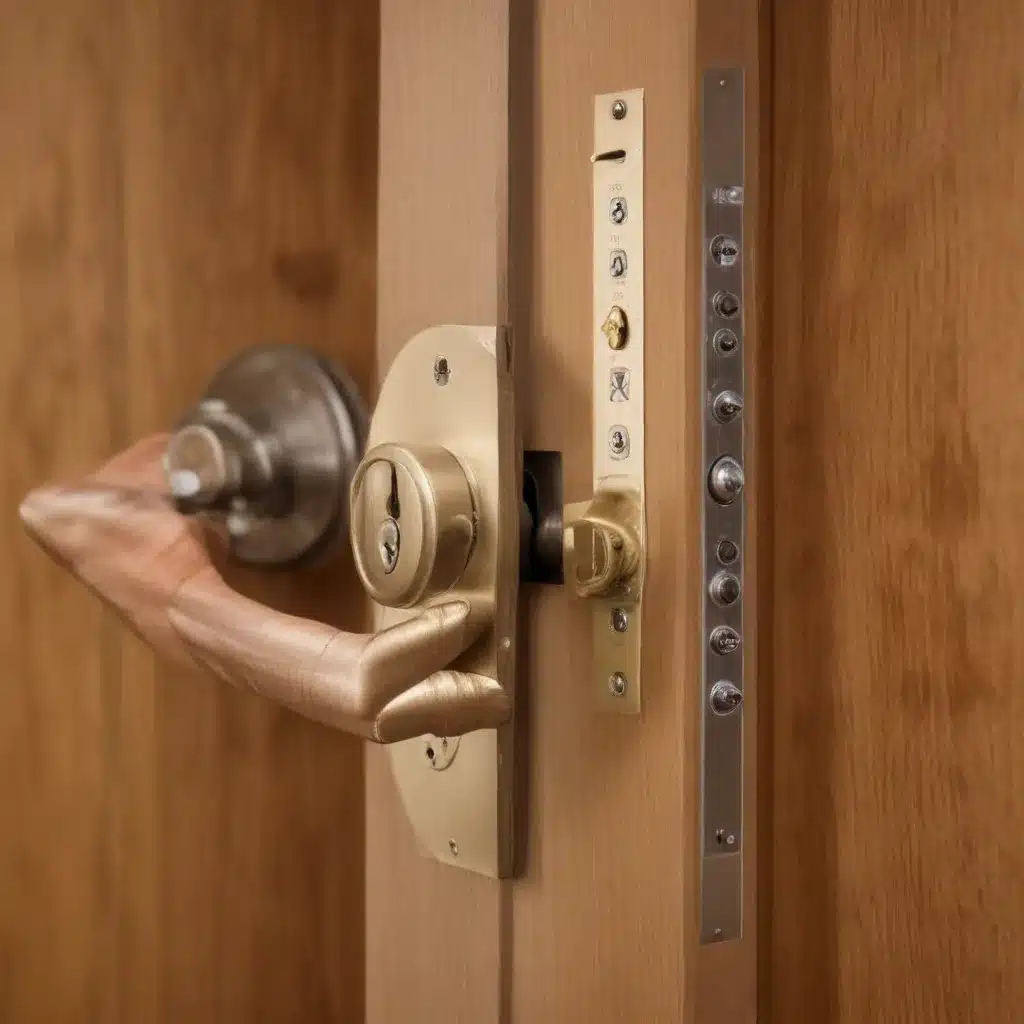
As an experienced locksmith from Local Locksmith Washington DC, I’ve seen firsthand the importance of maintaining secure and functional commercial locking systems. In this comprehensive guide, I’ll share my insights on advanced lock installations, emergency services, and key solutions to help you master the art of commercial lock repair.
Types of Commercial Locks
Commercial properties often require a diverse range of locking solutions to address their unique security needs. Let’s explore some of the most common types of commercial locks:
Deadbolt Locks
Deadbolt locks are a staple in commercial settings, offering enhanced security beyond traditional doorknob locks. These locks feature a thick, solid bolt that extends into the door frame, making it significantly more difficult for intruders to bypass. Deadbolts come in various grades, with higher-grade models offering superior protection.
Combination Locks
Combination locks, often used on safes and storage units, rely on a unique sequence of numbers to grant access. These locks are popular in commercial settings where keys can be easily misplaced or lost, as they eliminate the need for physical keys. Proper maintenance and regular combination changes are crucial to maintain the integrity of combination locks.
Keypad Locks
Digital keypad locks have gained widespread popularity in the commercial sector. These advanced locking systems allow for controlled access, with the ability to program individual codes for employees or visitors. Keypad locks offer the convenience of keyless entry while enhancing security through access monitoring and the ability to revoke codes as needed.
Lock Components
To effectively repair and maintain commercial locks, it’s essential to understand the key components that make up these locking systems. Let’s dive into the anatomy of a commercial lock:
Cylinders
The cylinder is the core of a lock, housing the internal mechanisms that facilitate the locking and unlocking process. Cylinders can be replaced or rekeyed to address security concerns, such as lost or stolen keys.
Tumblers
Tumblers are the intricate components within the lock cylinder that interact with the key to enable the lock to open. When the correct key is inserted, the tumblers align, allowing the cylinder to rotate and the lock to disengage.
Latch Mechanisms
The latch mechanism is responsible for securing the door when the lock is engaged. This component, often consisting of a spring-loaded bolt, extends into the door frame, preventing the door from being opened.
Repair Techniques
Skilled commercial locksmiths employ a range of diagnostic strategies and repair processes to restore the functionality and security of commercial locking systems.
Diagnostic Strategies
Diagnosing the root cause of a lock issue is the first step in the repair process. This may involve disassembling the lock, thoroughly inspecting its components, and identifying any wear, damage, or mechanical failures. Troubleshooting procedures, such as testing the lock’s operation and checking for proper alignment, are crucial in determining the appropriate course of action.
Repair Processes
Once the problem has been identified, the locksmith can begin the repair process. This may include replacing worn or damaged components, such as the cylinder, tumblers, or latch mechanism. The lock is then reassembled, and adjustments are made to ensure proper functionality and alignment. In some cases, the locksmith may need to calibrate the lock to ensure its smooth operation and compliance with safety regulations.
Restoration of Safety
Restoring the safety and security of a commercial property is the primary objective of any lock repair service. Locksmiths must consider various factors to ensure that the repaired lock meets the necessary security standards.
Security Considerations
After completing the repair, the locksmith will thoroughly test the lock’s functionality to ensure it is operating as intended. This may involve checking the lock’s resistance to forced entry, verifying the integrity of the latch mechanism, and evaluating the overall tamper-resistance of the system. Compliance with local safety regulations is also a critical consideration, as the locksmith must ensure the repaired lock meets all applicable standards.
Access Control Integration
In many commercial settings, lock repair services may also involve integrating the repaired lock into a comprehensive access control system. This may include incorporating the lock into a master key system or connecting it to an electronic access control platform, allowing for seamless management of access privileges and enhanced security monitoring.
Maintaining Functionality
Proper maintenance is crucial to ensure the long-term functionality and reliability of commercial locking systems. Locksmiths play a vital role in developing and implementing preventive maintenance protocols to keep commercial locks in top condition.
Preventive Maintenance
Regular lubrication and cleaning of lock components can significantly extend the lifespan of a commercial lock. Locksmiths may also recommend scheduled inspections to identify potential issues before they become more serious problems. By proactively addressing wear and tear, commercial property owners can avoid costly lock failures and ensure the continued security of their premises.
Upgrade Opportunities
As technology advances, commercial property owners may seek to modernize their locking systems. Locksmiths can provide guidance on upgrading to more efficient, convenient, and secure locking solutions, such as integrating the locks with building management systems or implementing biometric access control. These upgrades can enhance overall security, improve employee productivity, and streamline facility management.
By mastering the art of commercial lock repair, locksmiths like myself from Local Locksmith Washington DC can help restore the safety and functionality of commercial properties, ensuring that business owners and their employees can operate in a secure environment. Whether it’s repairing a malfunctioning lock, integrating an access control system, or implementing a preventive maintenance program, our expertise and dedication to the craft are invaluable in maintaining the security and integrity of commercial locking systems.


